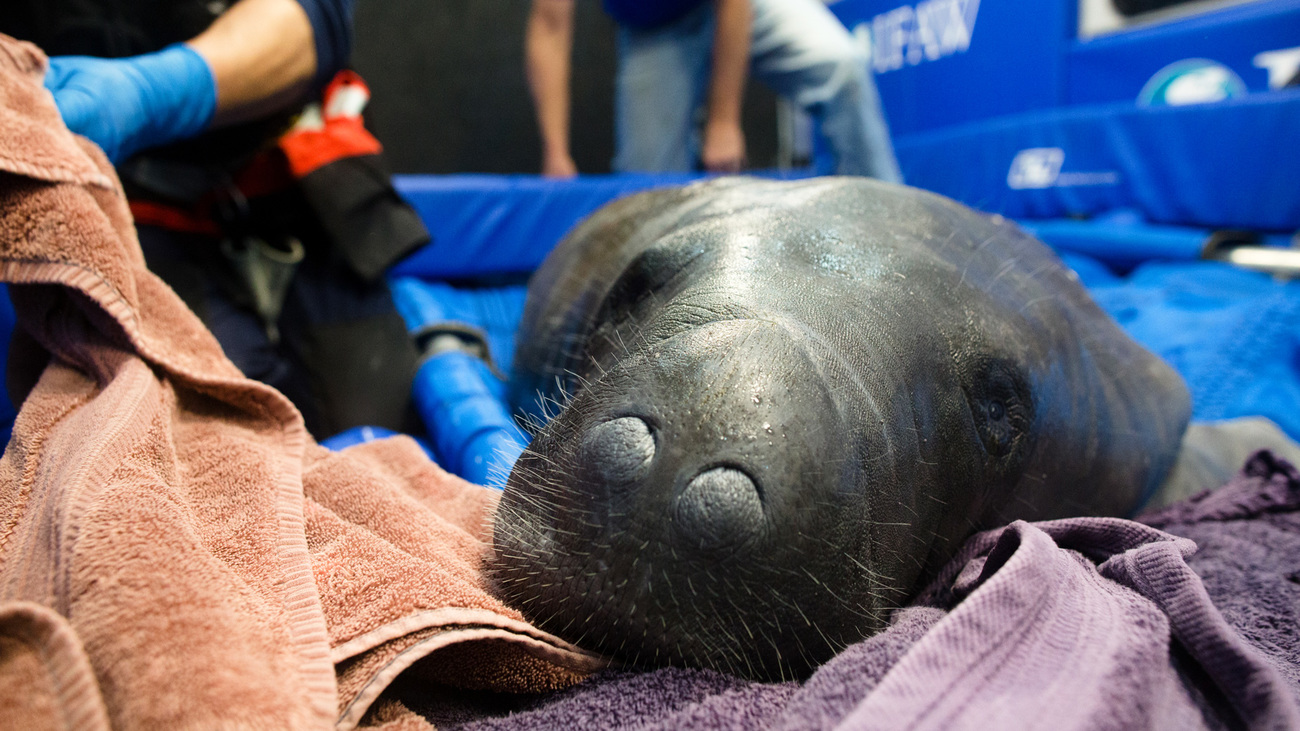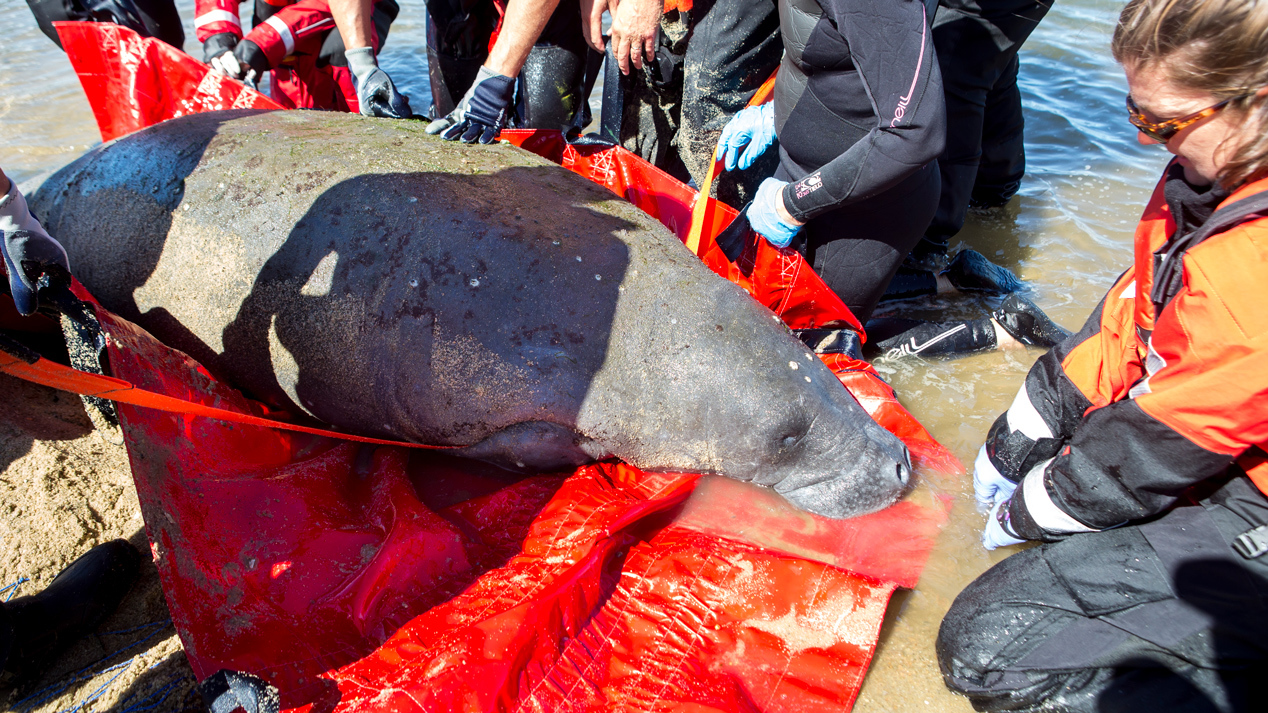Stranded Marine Mammal Rescue - Global
When the tide is low, the stakes are high for marine mammalspregnant manatee rescued, transported back home
pregnant manatee rescued, transported back home

Cape Cod is a popular summer vacation spot. Perhaps you have been there yourself to take in all Provincetown has to offer or visited one of the many stunning, sandy beaches. Marine animals pass through as well including unusual species like orcas, beluga whales, bottlenose dolphins, ringed seals and the occasional manatee. Yes, we are talking about those same cute-faced animals who live primarily in Florida’s warm waters.
Starting in August, there were multiple sightings of a single manatee swimming all along the coast. At first it was exciting to hear reports of this unusual marine mammal’s visit; as summer waned and temperatures dropped, rescuers with the International Fund for Animal Welfare (IFAW) began to worry and made a plan to rescue the animal later named “Washburn” and bring her back home.
The problem was she was always on the move, never staying in one place long enough for the team to reach her. Manatees cannot live in prolonged temperatures below 68 degrees Fahrenheit. To provide her the best chance of survival, IFAW intensified their search from land and sea and asked the public, volunteers and animal groups to share location data anytime she was spotted.
Thursday, September 22 turned out to be a lucky day. She was finally found in a small inlet in Falmouth, Massachusetts. Two teams, three boats, expert maneuvering, specialized equipment and pure brawn brought the 800 pound manatee to shore on Washburn Island—the landmass she was named after. Using a large seine net, Washburn was guided to shore, carried to the waiting skiff, motored to a nearby landing and then lifted onto a purpose-built marine mammal cart before being wheeled to the temperature controlled animal ambulance and placed on soft foam mats inside. The veterinarian and rescue staff immediately provided medical care and administered hydration fluids. Her vital signs were strong however, she was a bit lethargic. Was she cold stunned from the chilly water?

The rescuers stayed with Washburn in the back of the vehicle and monitored her health on the drive to the short-term rehabilitation facility in Connecticut. Everyone was hoping she would bounce back. Several hours later she was swimming freely in the warm pool at Mystic Aquarium and by morning she was munching as much romaine lettuce and spinach as she could get into her mouth—all good signs. She continued to make gains and then a few days later a routine ultrasound revealed something amazing; Washburn was pregnant!
Four days after the rescue, thermometers near Washburn Island registered 67 degrees Fahrenheit. The team breathed a sigh of relief knowing they saved Washburn and her expecting calf in the nick of time. Watch the rescue here.
The ultimate goal was to release Washburn back to the wild in her usual habitat off the coast of Florida; after swimming north all summer, she needed some time to rest and eat. A few more weeks of care and she was strong enough to head home. How would Washburn make the 1,200 mile journey back? A special flight was arranged for her on a Coast Guard airplane. After five hours in the air in a cushioned transportation crate, one last short stay in rehabilitation and a lot more lettuce, she was fitted with temporary satellite tag and released back out to the wild off the East Coast of Volusia County, Florida in an area known for its abundance of seagrass—one of manatees’ favorite food sources. Wildlife experts immediately began monitoring her progress and she was spotted swimming south, all the way to the Bahamas in late November. That is more than 300 miles! Everyone will be on the look-out for a healthy newborn manatee calf in the spring.
— Kerry Branon
Related content
Every problem has a solution, every solution needs support.
The problems we face are urgent, complicated, and resistant to change. Real solutions demand creativity, hard work, and involvement from people like you.